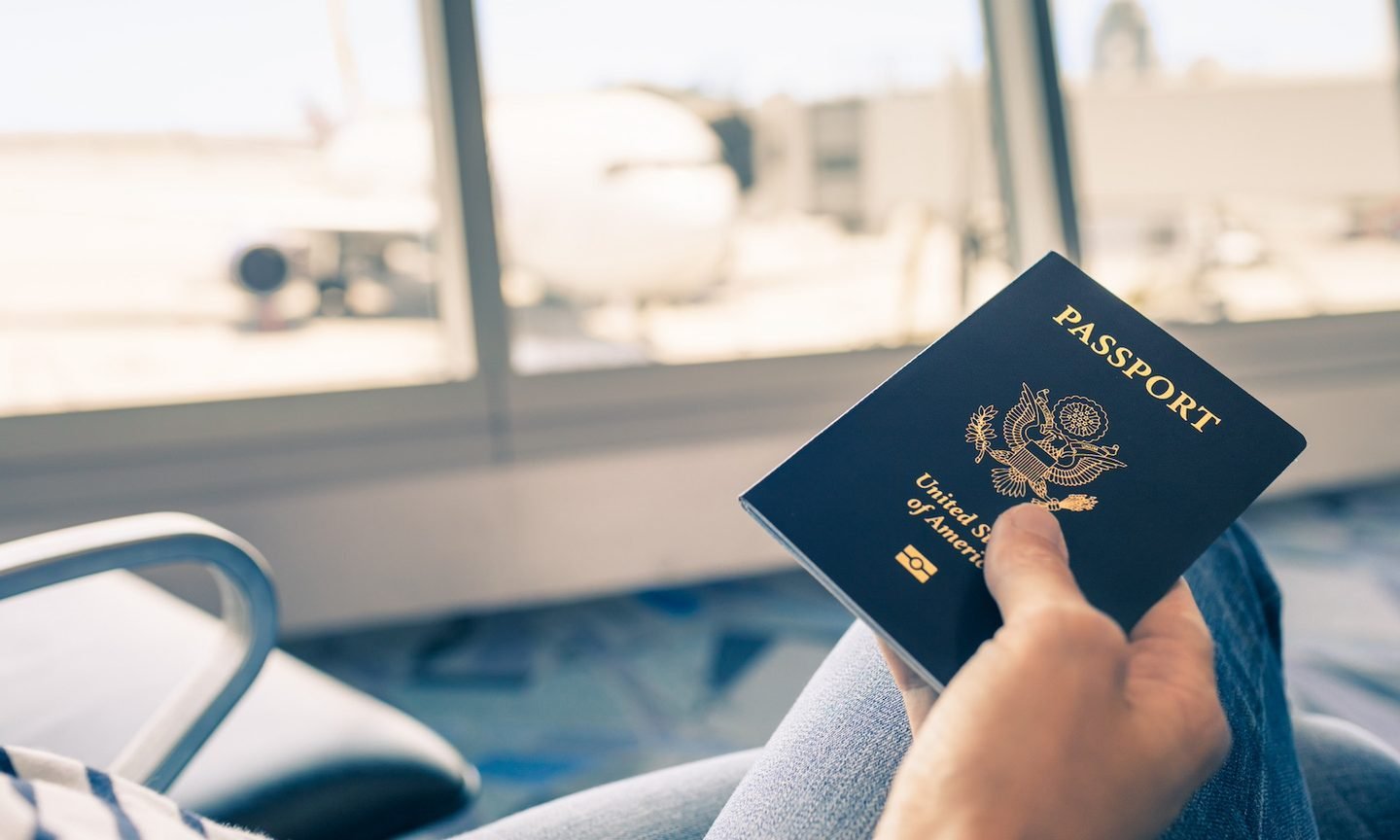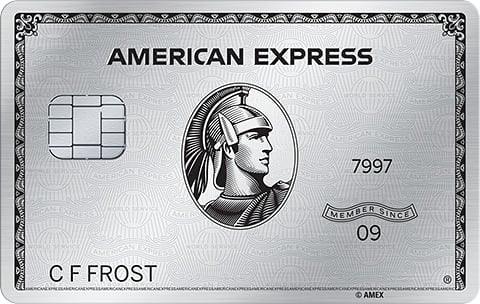Does Travel Insurance Cover Passport Issues?
Coverage for trip interruption, delay or cancellation can be useful in case of possible passport issues.

Many or all of the products on this page are from partners who compensate us when you click to or take an action on their website, but this does not influence our evaluations or ratings. Our opinions are our own.
Traveling abroad can be logistically challenging, even when your itinerary unfolds smoothly. Encountering a passport complication just before a big trip, or during your travels, can be an even bigger hurdle.
With the help of travel insurance, a lost passport — or trip delays resulting from a lost or stolen passport — might be covered. However, the level of travel protection you’ll get for passport issues (if any) depends on your plan’s covered reasons for a claim and its exclusions.
What is travel insurance?
Travel insurance is an optional protection plan for travelers. It generally offers financial reimbursement for unexpected events or situations that occur during your trip. According to NerdWallet analysis, buying travel insurance typically costs about 7% of your total trip expenses.
Some types of travel insurance coverage are:
- Baggage loss/delay and personal effects. This option covers a traveler's lost, stolen or damaged baggage/personal items.
- Trip cancellation or delay. You’ll get full or partial reimbursement for travel costs you’ve paid upfront, and that aren’t refundable by the travel provider. For example, if you become significantly injured during your trip and can’t travel safely, this coverage might cover expenses related to the trip delay, like a hotel stay.
- Cancel For Any Reason. Cancel For Any Reason (CFAR) travel insurance offers a financial safety net if you need to cancel your pre-paid, nonrefundable travel plans for an otherwise non-covered reason. CFAR can reimburse you for up to 75% of your travel expenses, but costs extra.
Travel insurance providers offer varying coverages and bundles. The allowable reasons for submitting a travel insurance claim, and coverage exclusions, also vary by provider and plan.
» Learn more: Trip cancellation insurance explained
So, does travel insurance cover passport issues?
Some travel insurance plans do cover passport issues depending on your unique situation.
These are just some of the passport-related mishaps and scenarios that might be covered through your travel insurance provider:
- Passport replacement reimbursement. If your passport is lost or stolen during your trip, the cost to replace it might be covered by some travel insurance plans under baggage and personal effects coverage.
- Passport snags before your trip starts. If your passport was stolen before your trip and the theft was documented, trip cancellation coverage may help you reclaim your qualifying lost expenses.
- Passport obstacles during your travel. Costs resulting from trip interruption due to a lost or stolen passport in the middle of your trip might be covered by trip interruption protection. Examples of expenses that might be reimbursable include the cost of rescheduling your flight, extended hotel stays, etc.
Passport issues that might be excluded from travel insurance
The best way to determine what scenarios are excluded from travel insurance policies is to read the policy terms directly or ask the insurer. However, delays due to certain passport scenarios are generally not covered.
- Losing a passport before your trip. Although you might be covered with trip cancellation if your passport was stolen before your travel plans, travel insurance usually doesn’t offer coverage for passports that were simply lost (rather than stolen) before traveling.
- Passport processing delays. Travel insurance doesn’t cover passport delays resulting in canceling or delaying your scheduled, prepaid trip. For example, ineligible reasons include if your passport doesn’t arrive in time for your flight or the U.S. Department of State’s processing timeline is taking longer than expected.
- Passports that don’t meet validity requirements. If your passport expires during the middle of your trip, like if you’re doing a multi-country trip, trip delays due to an invalid passport might not be covered.
- Passports that are confiscated or detained. If the local authorities or customs agency confiscates or detains your passport for any reason, resulting trip delays are likely not covered.
- Stolen passports without a police report. Part of the travel insurance claims process for stolen passports is providing a copy of the police report for the theft. The police report must also be made soon after the passport is found stolen; for example, within 24 hours. You’ll also need a filed police report for the stolen or lost passport to get a replacement from the local U.S. consulate or embassy.
- Passport issues due to personal negligence. Some insurance policies won’t cover expenses from a lost or stolen passport if you didn’t take reasonable care of your passport. Placing it on a restaurant table and leaving it behind, for example, is likely not a covered reason.
Where to get travel insurance protection
If you want travel insurance for your next trip, you can find it in a few ways.
Via your travel service provider
When booking your travel, many airlines and hotels partner with insurance providers to offer a travel protection option at checkout. For instance, United Airlines offers flight coverage via AIG Travel Guard.
Travel insurance companies
You can also purchase travel insurance directly with a third-party provider. When doing so, compare pricing from a handful of travel insurance companies and ensure each plan offers the same apples-to-apples coverage.
» Learn more: The best travel insurance companies
Travel credit cards
You might also already have some level of travel insurance protection through your credit card’s benefits program. Various travel rewards credit cards include trip protection coverage that might have your back if you face passport issues.
To activate travel insurance benefits, you must use the card to purchase your travel expenses. Also, check with your card provider to confirm to what extent passport issues are covered.
Top cards with travel insurance
Annual fee
$95.
$795.
$895.
$95.
Travel protections (not a comprehensive list)
• Trip delay: Up to $500 per ticket for delays more than 12 hours.
• Trip cancellation: Up to $10,000 per person and $20,000 per trip. Maximum benefit of $40,000 per 12-month period.
• Trip interruption: Up to $10,000 per person and $20,000 per trip. Maximum benefit of $40,000 per 12-month period.
• Baggage delay: Up to $100 per day for five days.
• Lost luggage: Up to $3,000 per passenger.
• Trip delay: Up to $500 per ticket for delays more than 6 hours.
• Trip cancellation: Up to $10,000 per person and $20,000 per trip. Maximum benefit of $40,000 per 12-month period.
• Trip interruption: Up to $10,000 per person and $20,000 per trip. Maximum benefit of $40,000 per 12-month period.
• Baggage delay: Up to $100 per day for five days.
• Lost luggage: Up to $3,000 per passenger.
• Trip delay: Up to $500 per trip for delays more than 6 hours.
• Trip cancellation: Up to $10,000 per trip. Maximum benefit of $20,000 per 12-month period.
• Trip interruption: Up to $10,000 per trip. Maximum benefit of $20,000 per 12-month period.
• Lost luggage: Up to $3,000 per passenger.
Terms apply.
• Trip delay: Up to $500 per ticket for delays more than 12 hours.
• Trip cancellation: Up to $10,000 per trip. Maximum benefit of $20,000 per 12-month period.
• Trip interruption: Up to $10,000 per trip. Maximum benefit of $20,000 per 12-month period.
• Baggage delay: Up to $100 per day for five days.
• Lost luggage: Up to $3,000 per passenger.
Learn more
» Learn more: What to know before buying travel insurance
Passport insurance options recapped
You might be able to reclaim lost travel expenses that arise because of unexpected passport setbacks. Whether your travel insurance covers lost passports or other passport concerns depends on your travel insurance type and the covered events outlined on your policy.
If your passport issue is covered by your travel insurance policy, it might be able to help you recoup at least some of your travel expenses. Reading the terms and conditions of your travel insurance can help you understand which passport issues are covered.
For the greatest peace of mind, consider CFAR travel insurance if it fits your budget. It’s the most reliable travel protection for travelers, but also the costliest option.
To view rates and fees of the American Express Platinum Card®, see this page.
Insurance Benefit: Trip Delay Insurance
- Up to $500 per Covered Trip that is delayed for more than 6 hours; and 2 claims per Eligible Card per 12 consecutive month period.
- Eligibility and Benefit level varies by Card. Terms, Conditions and Limitations Apply.
- Please visit americanexpress.com/benefitsguide for more details.
- Underwritten by New Hampshire Insurance Company, an AIG Company.
Insurance Benefit: Trip Cancellation and Interruption Insurance
- The maximum benefit amount for Trip Cancellation and Interruption Insurance is $10,000 per Covered Trip and $20,000 per Eligible Card per 12 consecutive month period.
- Eligibility and Benefit level varies by Card. Terms, Conditions and Limitations Apply.
- Please visit americanexpress.com/benefitsguide for more details.
- Underwritten by New Hampshire Insurance Company, an AIG Company.
Insurance Benefit: Baggage Insurance Plan
- Baggage Insurance Plan coverage can be in effect for Covered Persons for eligible lost, damaged, or stolen Baggage during their travel on a Common Carrier Vehicle (e.g., plane, train, ship, or bus) when the Entire Fare for a ticket for the trip (one-way or round-trip) is charged to an Eligible Card. Coverage can be provided for up to $2,000 for checked Baggage and up to a combined maximum of $3,000 for checked and carry-on Baggage, in excess of coverage provided by the Common Carrier. The coverage is also subject to a $3,000 aggregate limit per Covered Trip. For New York State residents, there is a $2,000 per bag/suitcase limit for each Covered Person with a $10,000 aggregate maximum for all Covered Persons per Covered Trip.
- Eligibility and Benefit level varies by Card. Terms, Conditions and Limitations Apply.
- Please visit americanexpress.com/benefitsguide for more details.
- Underwritten by AMEX Assurance Company.
How to maximize your rewards
You want a travel credit card that prioritizes what’s important to you. Here are some of the best travel credit cards of 2026:
- Flexibility, point transfers and a large bonus: Chase Sapphire Preferred® Card
- No annual fee: Wells Fargo Autograph® Card
- Flat-rate travel rewards: Capital One Venture Rewards Credit Card
- Bonus travel rewards and high-end perks: Chase Sapphire Reserve®
- Luxury perks: American Express Platinum Card®
- Business travelers: Ink Business Preferred® Credit Card
Article sources
NerdWallet writers are subject matter authorities who use primary,
trustworthy sources to inform their work, including peer-reviewed
studies, government websites, academic research and interviews with
industry experts. All content is fact-checked for accuracy, timeliness
and relevance. You can learn more about NerdWallet's high
standards for journalism by reading our
editorial guidelines.
Limited Time Only: Earn $1,000 Toward Travel!
Capital One Venture Rewards Credit Card 
Travel

For a limited time, the
Capital One Venture Rewards Credit Card is offering new cardholders an especially rich bonus: Enjoy $250 to use on Capital One Travel in your first cardholder year, plus earn 75,000 bonus miles once you spend $4,000 on purchases within the first 3 months from account opening - that’s equal to $1,000 in travel!
More like this
Related articles












